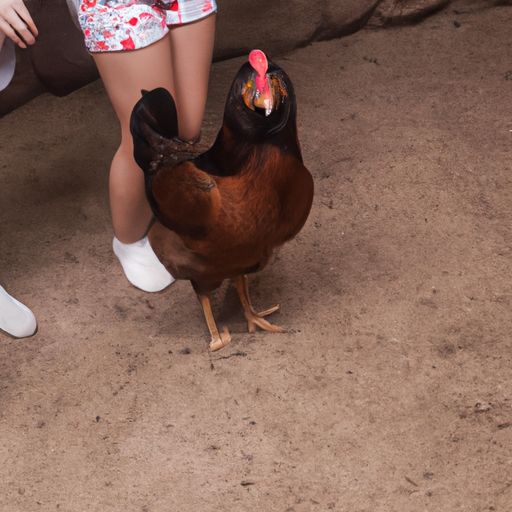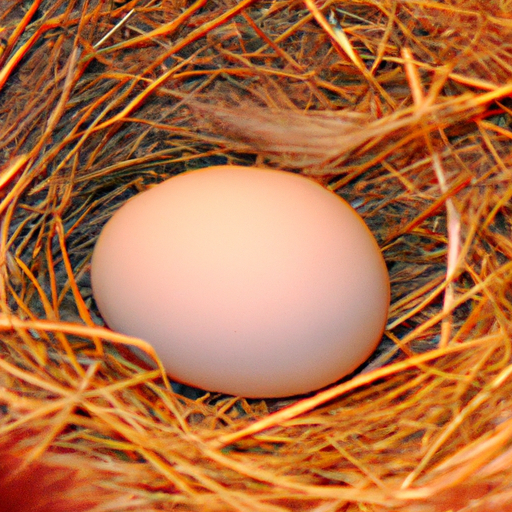If you’ve ever been around noisy or agitated chickens, you know how disruptive it can be to have a flock of feathery friends in a frenzied state. But fret not, for there may be natural remedies to restore peace and tranquility to your chicken coop. From herbal supplements to soothing sounds, exploring these alternative methods could be the answer to achieving a harmonious environment for both you and your feathered companions. So, whether your chickens are clucking up a storm or constantly on edge, it’s time to discover the possibilities of calming your flock naturally.
Determining the Cause of Noisy or Agitated Chickens
Noisy or agitated behavior in chickens can be caused by a variety of factors. By understanding these factors, you can implement appropriate solutions to create a calm and peaceful environment for your chickens.
Behavioral Factors
Chickens are social animals with their own unique personalities and behaviors. Noisy or agitated chickens may be exhibiting normal behaviors or responding to specific situations.
To address behavioral factors, it is important to provide enrichment activities that promote natural behaviors. This can include providing toys and objects for pecking, scratching, and exploring. Additionally, creating a calming environment by using hiding spots or nesting boxes can help chickens feel secure and reduce stress. Establishing a regular routine for feeding, cleaning, and social interaction will also help chickens feel more settled and less anxious.
Environmental Factors
The environment plays a significant role in the behavior of chickens. Loud noises, bright lights, and extreme temperatures can all contribute to a noisy or agitated flock.
To address environmental factors, it is important to control noise levels in and around the chicken coop. Avoid placing the coop near busy roads or machinery that could startle the chickens. Additionally, consider managing lighting conditions by using appropriate curtains or shades to control the amount of natural light that enters the coop. Providing consistent, optimal temperatures and ventilation is also crucial in ensuring the comfort of your chickens.
Health Factors
Underlying health issues can also cause chickens to become noisy or agitated. Pain, illness, or discomfort can manifest as behavioral changes in chickens.
To address health factors, it is important to regularly monitor your chickens’ health and promptly identify and treat any underlying issues. Consult a veterinarian who specializes in poultry to ensure accurate diagnoses and appropriate treatments. It is equally important to provide a nutritious and balanced diet to support your chickens’ overall health. Clean and comfortable living conditions, including regular coop cleaning and appropriate bedding, are also vital to maintaining a healthy flock.
Natural Remedies
Natural remedies can serve as additional support in calming noisy or agitated chickens. It is important to approach the use of natural remedies with caution and consult with a veterinarian to ensure their safety and effectiveness.
Herbal Supplements
Certain herbs have calming properties that can be beneficial for chickens. For example, chamomile and lavender are known for their relaxing effects. Herbal supplements can be added to your chickens’ diet or provided in the form of treats to promote a sense of calm.
Essential Oils
Essential oils can also be used to create a soothing environment for chickens. Lavender, chamomile, and peppermint oils can be diluted and sprayed in the coop or added to a diffuser to provide a calming effect. It is important to use essential oils sparingly and ensure proper ventilation to avoid overwhelming the chickens.
Herbal Teas
Herbal teas can be used as a natural way to calm chickens. Chamomile, lemon balm, and lavender teas can be brewed and added to their drinking water. These teas have soothing properties that can help relax the chickens and promote a sense of calm.
Training Techniques
Training techniques can be valuable in helping chickens develop appropriate behaviors and reducing noisy or agitated behavior.
Socialization and Handling
Proper socialization and gentle handling from a young age can help chickens become more comfortable with human interaction. Regular and positive contact with humans can help them feel secure and less likely to exhibit noisy or agitated behavior.
Positive Reinforcement
Using positive reinforcement, such as rewarding calm behavior with treats or praise, can help chickens associate calm behavior with positive outcomes. This can be particularly useful during training sessions or when introducing new experiences to the flock.
Desensitization
If chickens are particularly sensitive to certain stimuli, gradual desensitization can help them become accustomed to those triggers. For example, if chickens become agitated by loud noises, gradually exposing them to similar sounds in a controlled environment can help reduce their reaction over time.
Preventive Measures
Preventive measures can contribute to maintaining a calm and peaceful environment for your chickens.
Regular Health Check-ups
Regular health check-ups with a veterinarian are essential in identifying and addressing any health issues before they escalate. Scheduled check-ups can also help you stay proactive about your chickens’ overall well-being and prevent potential behavioral issues.
Predator Protection
Frequent predator attacks can cause chickens to become agitated and fearful. Implementing appropriate predator protection measures, such as sturdy fencing, secure coop design, and regular checks for potential entry points, can help create a safe and secure environment for your flock.
Well-spaced and Comfortable Housing
Adequate space and comfortable housing are crucial for maintaining a peaceful flock. Overcrowding can lead to stress and aggression among chickens, resulting in noisy or agitated behaviors. Providing enough space for each chicken and ensuring comfortable housing conditions, such as clean bedding and appropriate temperature control, can significantly contribute to reducing behavioral issues.
Expert Advice
Seeking expert advice is beneficial in understanding and addressing noisy or agitated behaviors in chickens.
Consulting a Veterinarian
Consulting a veterinarian who specializes in poultry can provide valuable insights and guidance. They can offer professional advice, diagnose and treat any underlying health issues, and provide appropriate recommendations for addressing behavioral concerns.
Joining Online Communities
Joining online communities focused on raising chickens can provide a wealth of information and shared experiences. These communities often include experienced chicken keepers who can offer advice and support in dealing with noisy or agitated behavior.
Attending Workshops and Seminars
Attending workshops and seminars on poultry behavior and management can further enhance your knowledge and understanding. These events often feature experts in the field who can provide specific strategies and techniques for addressing behavioral issues in chickens.
Alternative Therapies
Alternative therapies can be considered as additional options for calming noisy or agitated chickens. It is important to approach these therapies with caution and consult with a veterinarian to ensure their safety and appropriateness for your flock.
Music Therapy
Playing calming music or nature sounds in the chicken coop can create a soothing atmosphere. Soft, slow-tempo music or sounds of nature, such as gentle rainfall or birdsong, can help reduce stress and promote relaxation in the flock.
Meditation and Relaxation Techniques
Introducing meditation and relaxation techniques, such as guided visualization or breathing exercises, can help chickens relax and reduce anxiety. These techniques can be incorporated into regular interaction with the flock or during specific training sessions.
Acupuncture
Acupuncture, when performed by a trained professional, can be used to address specific health issues and promote overall well-being in chickens. It can help alleviate any discomfort or pain that may contribute to noisy or agitated behavior.
Working with Breed Characteristics
Understanding the characteristics of different chicken breeds and implementing appropriate strategies can help manage their behavior.
Understanding Different Breeds
Each chicken breed has its own unique traits and behaviors. Understanding the characteristics of your specific breed can help you anticipate and address any potential issues related to noise or agitation. Some breeds may be naturally more vocal or prone to anxiety, requiring tailored approaches to create a calm environment.
Selective Breeding Practices
Selective breeding practices can play a role in shaping the behavior of chickens. Breeding for specific traits, such as calmness or reduced vocalization, can help produce chickens that are less likely to be noisy or agitated. Working with reputable breeders who prioritize temperament and behavior can contribute to a more peaceful flock.
Creating Appropriate Living Conditions
Providing appropriate living conditions that accommodate the specific needs of your chicken breed is crucial in managing their behavior. This includes ensuring the right amount of space, suitable bedding, and proper temperature control. Meeting their physical and behavioral needs can help prevent or reduce noisy or agitated behavior.
In conclusion, addressing noisy or agitated behavior in chickens requires a comprehensive approach that considers various factors. By implementing appropriate solutions and understanding the unique characteristics of your flock, you can create a calm and comfortable environment that promotes the well-being of your chickens. Remember to consult with experts, seek professional advice when needed, and prioritize the health and happiness of your feathered friends.




